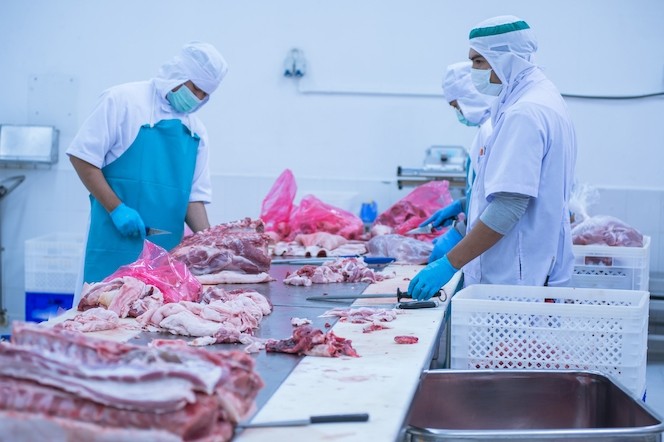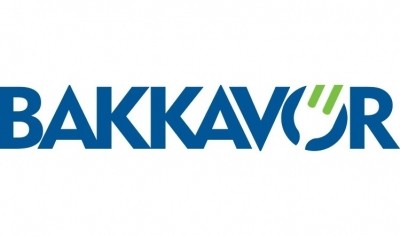Unite calls for ‘mandatory’ social distancing in food plants

The Department for Environment, Food & Rural Affairs (DEFRA) has responded to the calls, saying that food producers must ensure “measures” are in place to protect their employees.
Last week the Government issued guidance to the food industry, saying that all employers were expected to follow social distancing guidance, including food businesses, as far as was “reasonably possible”.
It said that where the production environment made it difficult to implement social distancing “employers should consider what measures may be put in place to protect employees”.
The guidance also said that food safety practices in food processing plants should continue to be delivered to the highest hygiene standards, including the use of some personal protective equipment and frequent hand-washing.
However, Unite has called on DEFRA minister George Eustice to make the two-metre social distancing mandatory across the food processing sector, abattoirs and supermarkets.
Last week, Unite revealed that meat factory workers at Moy Park’s Portadown plant and ABP’s Lurgan facility in Northern Ireland had walked out over concerns about social distancing.
Mandatory
Unite national officer for the food industry Bev Clarkson said: “The lack of the mandatory imposition of the two-metre rule by Government is a problem currently nationwide. Ministers need to make the two-metre rule mandatory, as matter of urgency, across food processing, and also in the retail sector.
“As a society, we have quickly recognised that food production and the retail sector are key areas in maintaining adequate food supplies and keeping people’s morale high.”
She said that while some employers were introducing social distancing, the fact that it was not mandatory meant they were not implementing it on production lines.
Fresh prepared and chilled food manufacturer Bakkavor has said that protecting its 17,000 workers was its priority.
A spokesperson said: “We are following the PHE guidelines for maintaining social distancing in food process plants and have also enhanced measures to restrict visitor access and implemented a heightened programme on return to work controls.
"Staff that are unwell get paid sick leave fully in line with their agreed employment contracts and we follow the Government’s extension of Statutory Sick Pay (SSP) to ensure that it commences from the first day of absence. Bakkavor also recognises that those who are in self-isolation should be treated as being on sick leave and are paid a minimum of SSP as they are 'helping to protect others from the virus and should not be penalised for doing the right thing'."
The news comes as the union GMB called on the company to “radically reorganise” its production methods and schedules for social distancing. It has already called on the food manufacturer to improve its sick pay scheme to ensure that workers needing to self-isolate during the health emergency are able to afford to stay off work.
Unprecedented
DEFRA said that this is an “unprecedented time” and it urged employers to listen to the concerns of its workforce and take socially responsible decisions.
A DEFRA spokesperson said: “Government guidance clearly sets out the importance of staying two metres apart from other people at all times and employers – including food businesses – are expected to follow this guidance.
“If circumstances in the food production environment mean that they cannot ensure social distancing, employers must put other measures in place to protect their employees.”
Meanwhile, the British Frozen Food Federation (BFFF) has issued guidance on social distancing measures that need to implemented in food processing plants in the UK.
It said that the Government had given “clear guidance” to help reduce the spread of the virus. BFFF said that food producers must minimise opportunities for the virus to spread by maintaining a distance of two metres between individuals.
It advised food producers to consider a range of options such as time segregation by running a line slower for longer. Also physical segregation with perspex panels to separate workstations and staggering start/finish times of staff to avoid a mass rush.
An advice guide has also been issued by Northern Ireland Food & Drink Industry. It said that workers needed clear communication and reassurance that standards offered them protection against the virus. It advised factories to look at a range of initiatives such as identifying key touch points such as door handles and ensure these are being cleaned and sanitised.
It also advised factories to consider where there is a limited number of personnel with specific skills and if possible to segregate these into two groups so there is back up if there is illness.
















